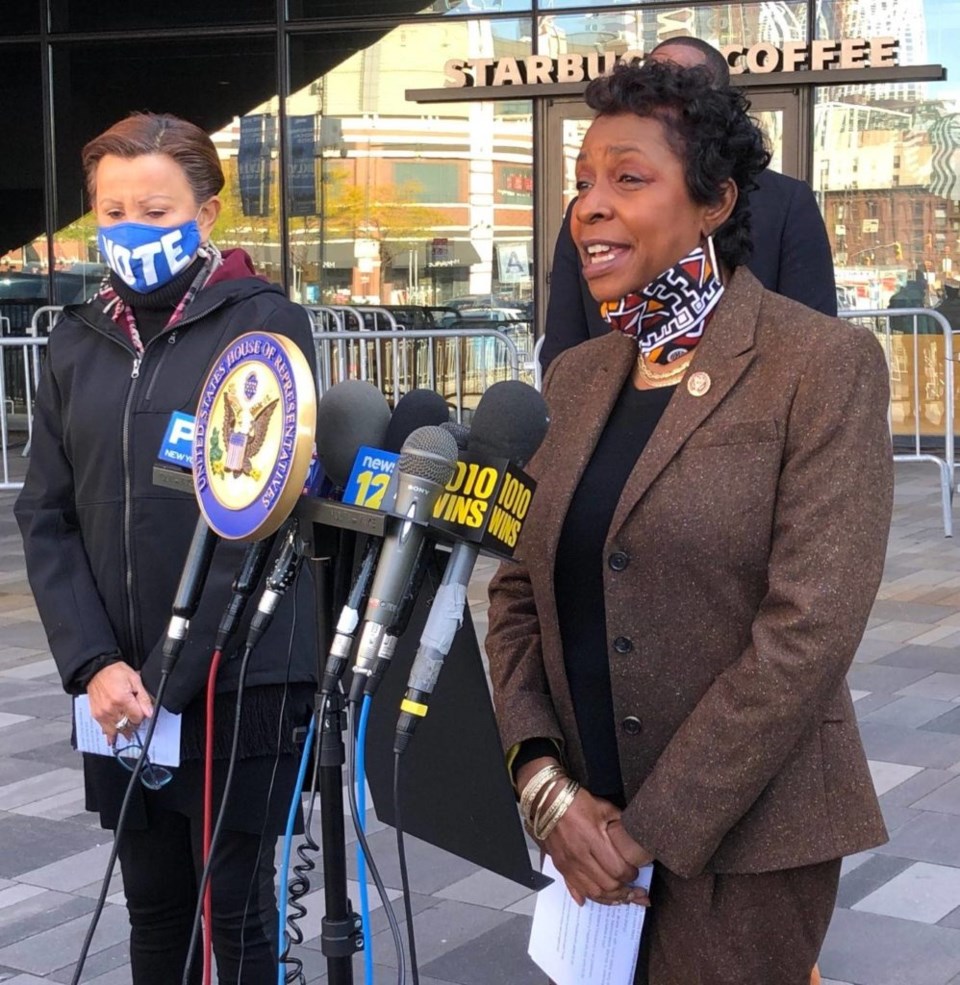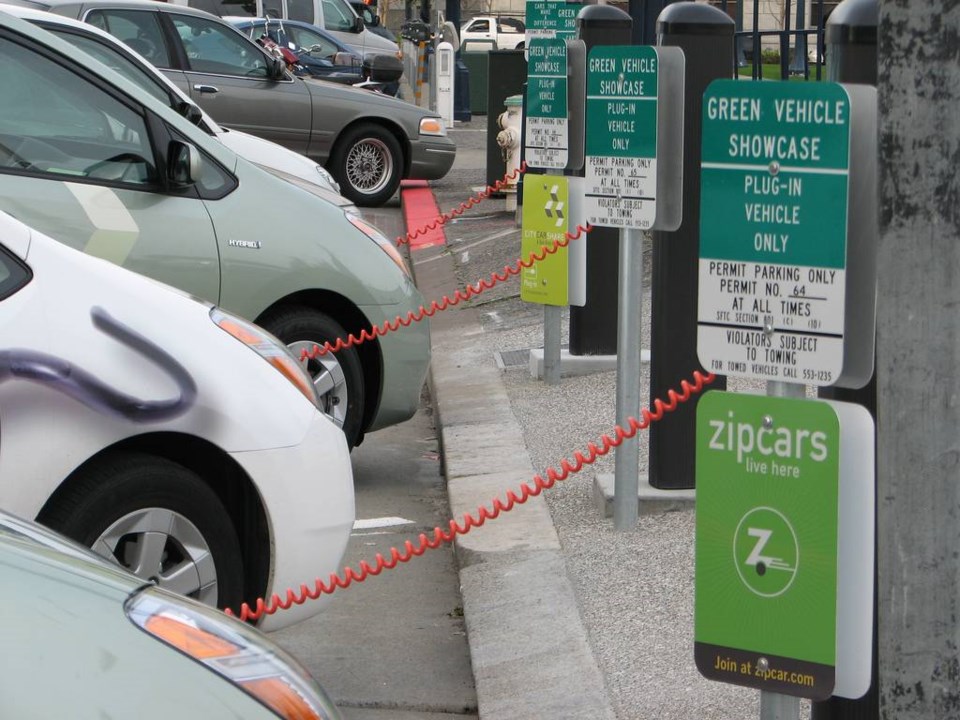New York Congresswoman Yvette D. Clarke is tackling the climate crisis with two new pieces of legislation she hopes will improve air quality in Brooklyn and other neighborhoods at the front line of global warming.
Clarke -- who represents Central and South Brooklyn -- introduced legislation in the house last Tuesday that would create 200,000 new electric vehicle charging stations in underserved communities by 2030.
The next day, she announced legislation aimed at reducing harmful emissions from refrigerated heavy-duty trucks.
In both cases, Brooklyn-born Clarke called out her home city as a place that could seek to benefit from the legislation, both in terms of jobs and clean air.
Electric charging boom?
The Electric Vehicles for Underserved Communities Act would provide a boost in grant-funding and technical assistance for electric vehicle charging stations to be built in ares "most impacted by transportation pollution," Clarke said.
The law would establish an Electric Vehicle Charging Equity Program to create 200,000 charging stations nationwide in underserved communities by 2030, identifying and assessing the challenges of infrastructure deployment in underserved and disadvantaged communities

"Not only will this support a zero-emission transportation sector, it will also be a major generator of good-paying local jobs that help put people back to work and revitalize our economy both in Brooklyn and across the nation," she said.
In a press release, Clarke pointed to U.S. Environmental Protection Agency (EPA) data stating the transportation sector has become the single most significant source of greenhouse gas emissions in the United States.
Underserved and disadvantaged communities are disproportionately vulnerable to its impacts -- including respiratory issues and premature death -- making equity an urgent concern for all efforts to electrify the transportation sector and move towards a clean energy economy, she said.
Companion legislation was introduced the same day in the Senate by Sen. Cortez Masto of Nevada.
Cleaning up trucks
Clarke is also taking aim at air-polluting refrigerated heavy-duty trucks.
"Refrigerated trucks are ubiquitous in cities like Brooklyn, where they can be seen and heard at all hours of the day and night making deliveries," she said.
"While these trucks are a vital component of regional and local economies, they are also major sources of climate-warming emissions and local air pollution in the communities they serve."

The legislation would create a grant program at the EPA to electrify diesel-powered transport refrigeration units on commercial trucks and vans.
Medium- and heavy-duty vehicles contribute more than 20% of greenhouse gas emissions from the transport sector, and emit higher levels of particulate matter and smog-forming pollutants than passenger vehicles, Clarke said in a press release.
Electric refrigeration units that can be plugged in when not driving emit fewer greenhouse gases.
The FREEZER Trucks Act would authorize $30 million in funding that would be used to convert diesel units to electric and install the charging infrastructure needed to support electrification.
It would focus on projects in communities that currently have the highest levels of diesel pollution.
The FREEZER (Fostering and Realizing Electrification by Encouraging Zero Emission Refrigeration) Trucks Act was announced alongside Sen. Edward J. Markey (D-Mass).




